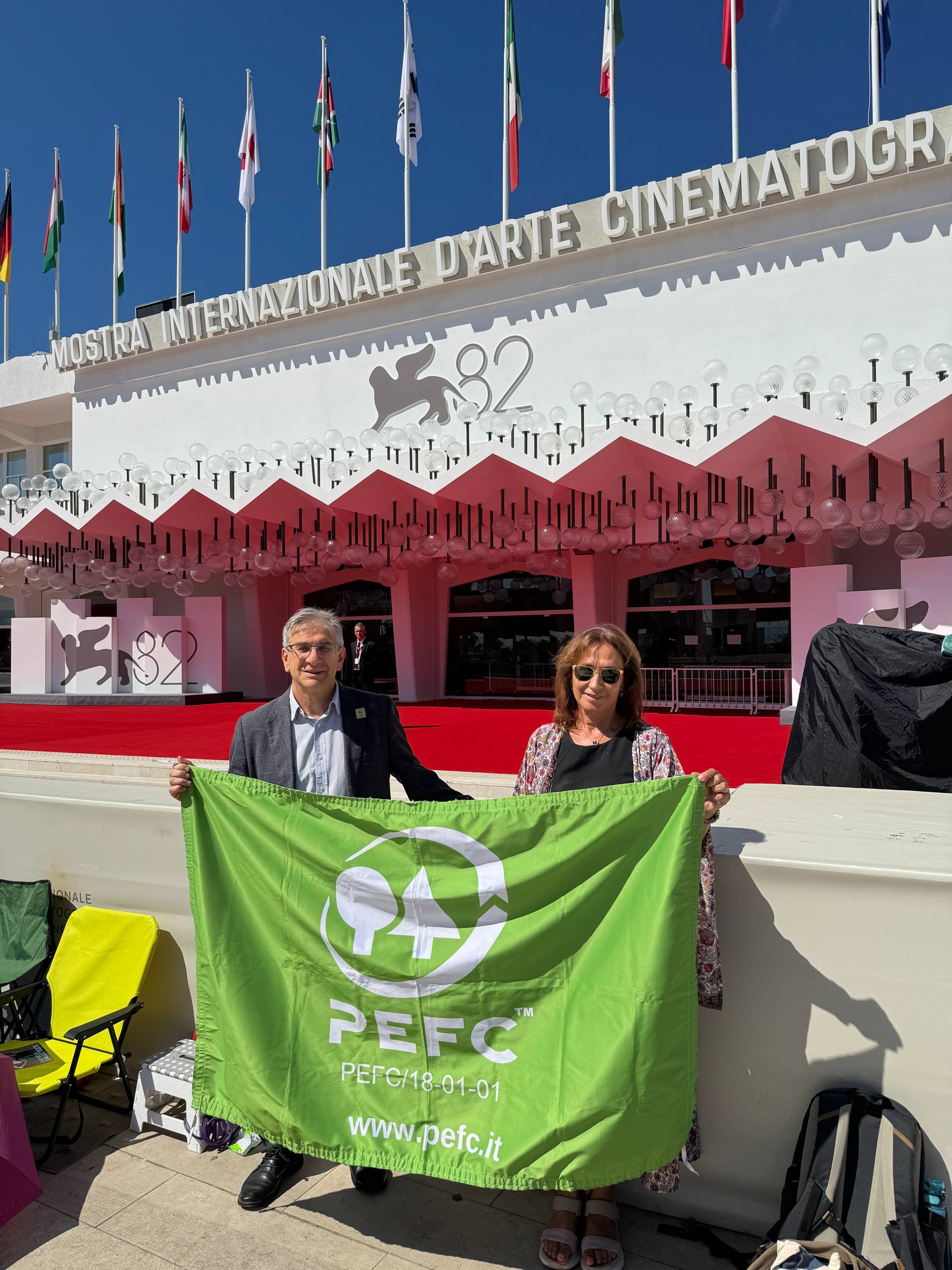The value of forests in the magic of cinema
Yesterday at the Venice International Film Festival, PEFC Italy presented a new report on the role of wood in film production and the urgent need for more sustainable practices.
The value of forests in the magic of cinema
5 September 2025 News
Yesterday at the Venice International Film Festival, PEFC Italy presented a new report on the role of wood in film production and the urgent need for more sustainable practices.
A spotlight on wood in cinema
The film industry brings alternative and fantastical worlds to life with wood – a material still central to set design today. Yet what is the environmental impact, and how much timber does the industry consume each year?

The report, “The Value of Wood in the Film Industry: Materials, Strategies, and Craft Professions” (in Italian), was launched on the occasion of the 14th Green Drop Award, the environmental prize given by Green Cross to films that stand out for their sustainability themes.
The report highlights a striking paradox: while wood is one of the most widely used materials in set design and scenery, there is almost no aggregated data – nationally or globally – on how much is actually consumed. This “black hole” makes it impossible to measure the ecological footprint of the film industry with accuracy.
Italy leading the way
Despite this gap, the Italian film sector is already moving towards greater sustainability. Protocols such as EcoMuvi, Green Film, Zen2030, and Cinecittà’s Green Standard promote the reuse of materials and explicitly require the use of certified wood. Italy’s well-established recycling infrastructure also supports this transition: for example, 64.9% of wooden packaging is already recycled (Rilegno data).
The report also reviews strategies adopted by international initiatives such as the Green Production Guide and the Sustainable Production Alliance in the US, which include Disney and Netflix among their signatories, and the UK’s Albert programme, which promotes zero-waste practices and certified sourcing.
“Cinema, with its narrative power and storytelling ability, can become a strategic ally of sustainability,” said Antonio Brunori, National Secretary of PEFC Italy.
“Bringing PEFC-certified wood to film sets means ensuring quality, safety, and responsibility, contributing to a greener and more conscious cultural industry. In Italy, we already have all the elements to lead the transition: a culture of recycling, effective protocols, and certified supply chains. But now we need vision and a system, starting with shared monitoring tools, logistics hubs for large-scale reuse, and incentive policies that consolidate cinema’s leadership in sustainability.”

Why certified wood matters
Wood remains essential in cinema: it is versatile, easy to work with, and central to building the worlds audiences see on screen. But its environmental impact depends on where it comes from and how it is used. Choosing PEFC-certified wood ensures that materials come from sustainably managed forests, protecting biodiversity, workers’ rights, and reducing the industry’s carbon footprint.
High-profile productions are already embracing this approach. The Sky Original series Un Amore (2024), starring Stefano Accorsi and Micaela Ramazzotti, was produced under the Green Film protocol and used PEFC-certified materials.
Practical strategies for greener sets
To support further change, PEFC Italy has developed a handbook with practical guidance for productions looking to reduce their environmental impact through certified wood. Suggested strategies include:
- Internal environmental policies for film productions
- Certification clauses in supplier and set designer contracts
- Sustainability checklists during pre-production and set construction
- Project certification for large productions
- Training for set designers and production managers
- Final documentation for communication and reporting
The report was produced by the Entertainment and Environment Observatory, an organization promoted by the National Association of Cinema Operators (Anec), Green Cross Italia and the National Association of Private Theaters (Atip), and supported by PEFC International, PEFC Spain, and the Sustainable Forestry Initiative (SFI),